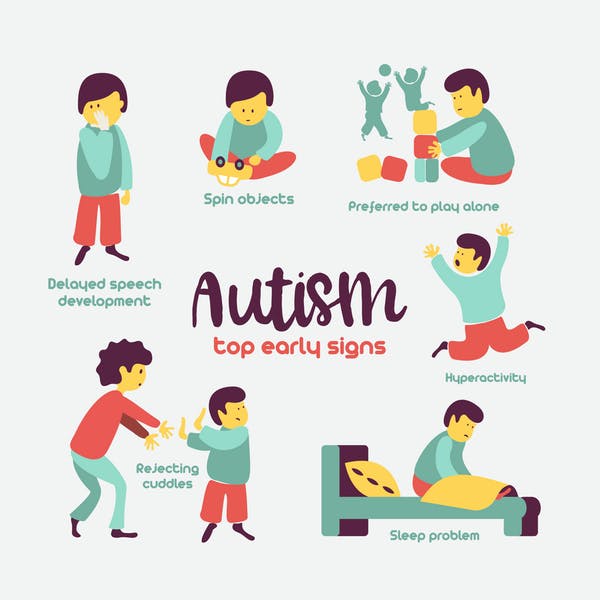The Individuals with Disabilities Education Act (IDEA) requires that once a child with special needs turns 16, her Individualized Education Program (IEP) must include a discussion about transition services, but most experts urge parents to start even earlier.
“We should start talking about transitions to adult-oriented systems at age 14 at the latest,” says Renee Turchi, medical director of The Center for Children and Youth with Special Health Care Needs at St. Christopher’s Hospital for Children in Philadelphia. “Transition is truly a developmental and emotional milestone. Kids with special healthcare needs warrant special discussion and consideration because that transition involves more issues to consider.”
While the IDEA offers many protections to children with special needs, no similar legislation applies after the child turns 21. If there’s no plan for the transition and after, parents can be left scrambling, notes Linda Scharfman, peer support counselor for the Rutgers University Behavioral Healthcare Mom2Mom helpline. “Parents should pay attention to timelines set by state agencies to make sure entitlements, such as social security benefits and Medicaid, are in place,” she says.
Medical home model
The medical home model is a healthcare option that provides a family with the necessary resources to get their child help as needed. Also called a patient-centered medical home (PCMH), this approach is not a place but a collaboration among the child’s primary-care provider and any other medical professionals that make up his team. It allows for a personalized plan and greater access to health care when the need arises.
Talk with your child’s pediatrician or primary-care provider, says Turchi. The discussions about a PCMH arrangement should consider the child’s and family’s needs with regard to:
• Medical issues
• Physical necessities
• Mental-health needs
• Education or work readiness
• Therapeutic needs
• Community partners
• Legal advice regarding guardianship, insurance needs and child and family rights
• Life skills
“Starting at a very young age, parents can put in place a plan to help their child become as independent as possible,” says Scharfman. Consider your child’s:
• Needs
• Strengths
• Challenges
• Skills
• Interests
• Behavior
• Level of communication
• Accommodations needed to succeed, such as assisted technology
• Future choices regarding living assistance and education
To the greatest extent possible, teach your child hygiene as well as how to cook, care for her health, use money and transportation, socialize and possibly get a driver’s license.
“Most important is self-advocacy, even for children who are not able to verbalize,” Scharfman says. “Some kids might not be able to verbalize it, but you can tell there are things they might like.”
Scharfman also urges parents to get to know national, state and local organizations specific to their child’s needs, where they can find support groups, information and advice relevant to a specific disability. “The more organizations parents are involved in and the more mailing and email lists they get on, the more they will hear about relevant conferences, seminars and webinars, and information will start to come to them,” she says.
Educational opportunities
The staff at your child’s school can help as you plan your child’s educational course after high school. Hallie Ciarlone, director of college counseling at Delaware Valley Friends School in Paoli, PA, encourages parents to start planning early in the student’s junior year with help from the high school’s guidance counselors.
“There are over 3,000 colleges in the U.S. alone,” she says. “There are post-secondary educational opportunities for students of all abilities and interests. There’s also been a rise in transitional programs — either independent or attached to a campus — for more profoundly disabled students or students who need more help with independent-living skills.”
A success story
For one student, Hayley Smith, it became clear when she reached middle school that her auditory-processing disorder and executive-function issues were making learning difficult. She was attending public school and had an IEP, but her parents felt Hayley needed more individual attention.
“With auditory processing, you’re always a couple steps behind, always trying to catch up,” says her mom, Fran Manning-Smith, who lives in Garnet Valley, PA. “We decided to transition Hayley to Delaware Valley Friends School, which is a private school dedicated to kids with learning differences. That’s when we started thinking she was going to have a different trajectory.”
Hayley’s parents weren’t quite sure what that path would be at first. Although Hayley wanted to go to college, they didn’t know if she’d have the grades or skills to be successful there. They relied on the help and advice of the staff at Delaware Valley Friends to explore Hayley’s options.
“The school worked to build her strengths and also to use a lot of the learning technologies now available to kids like Hayley with learning differences,” says Manning-Smith.
Now 18, Hayley is a freshman at Johnson and Wales University in Providence, RI, where she studies hospitality. The school offers her special accommodations, including an academic support advisor and the ability to schedule her own test times so she has a private room without distractions.
“The trajectory for kids with learning differences is much broader than people realize,” says Manning-Smith. “There are so many amazing programs out there.”
Terri Akman is is a contributing writer to MetroKids.






